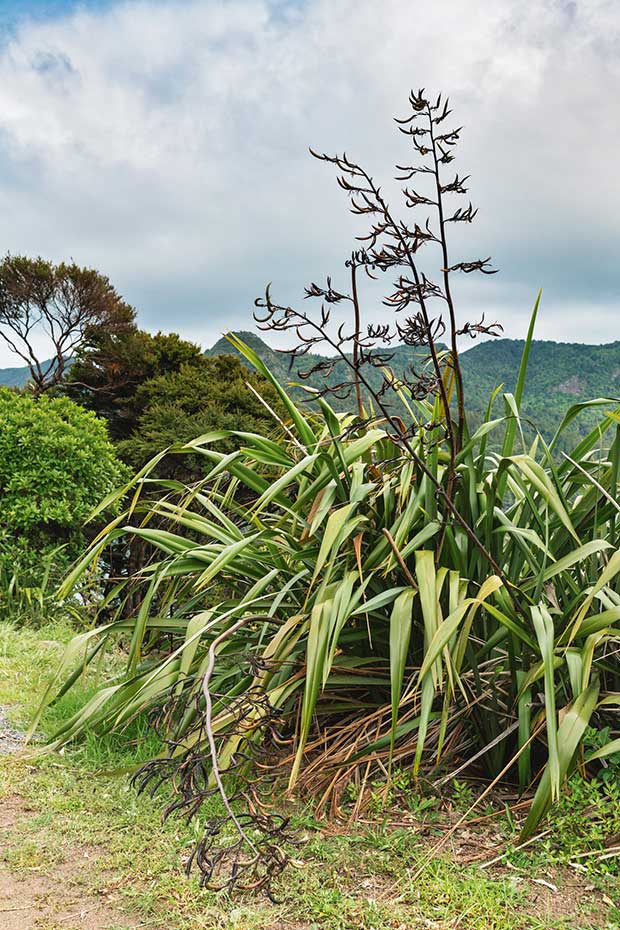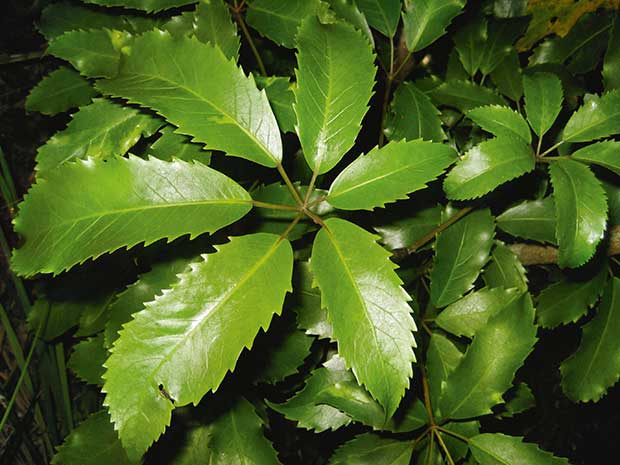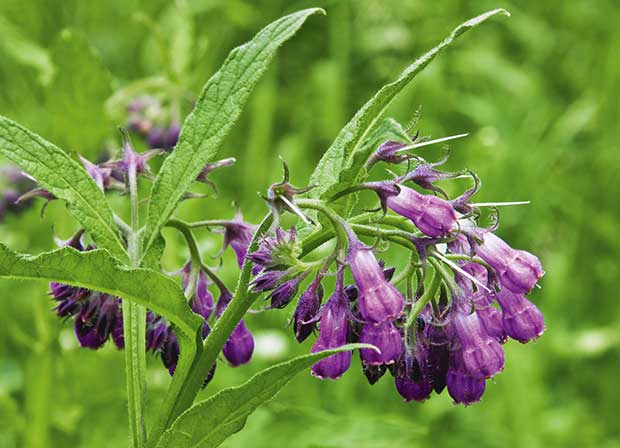4 native plants to use for fodder in New Zealand

Flax.
New Zealand plants didn’t evolve for browsing ruminants, but there are a few that are beneficial fodder.
Words: Sheryn Dean
1. NZ FLAX (harakeke, Phormium tenax)
Flax makes a maintenance-free shelter, plus it helps to prevent bloat and to remedy scouring. Cows, sheep, deer, and goats will eat tips and strip the foliage of its tasty green parts.
2. BROADLEAF (kāpuka, Griselinia littoralis)
Broadleaf is highly palatable to stock and deer, reasonably fast-growing, and recovers quickly from browsing.
3. WHITEYWOOD (māhoe, Melicytus ramiflorus)
Whiteywood is a small (5m), fast-growing tree that is so palatable that early farmers nicknamed it ‘cow leaf’. It was considered a valuable source of fodder, especially in droughts. Cows, horses, sheep, deer and goats love it.
4. FIVE-FINGER (whauwhaupaku, Pseudopanax arboreus)

Five-finger.
Five-finger is highly palatable to cattle (and deer, goats, possums, and wallabies). Seven-finger (pate, Schefflera digitata) is similar.
SHERYN’S TIPS FOR EXTRA FODDER

Comfrey.
A widely varied diet is beneficial to animal health, but also to your pasture which will become more efficient in terms of recycling nutrients, supplying food throughout the different seasons, and hosting a balance of micro-organisms to combat issues like facial eczema, grass grub, bloat etc.
We can’t live on chocolate alone and variety is the spice of life so offer your animals just about every herb humans can eat.
Underplant trees with beneficial plants like wormwood, comfrey, rosemary etc. The bees will love them, and the stock will self-medicate on them, nibbling when required.
You can also undersow your pasture with a range of grasses and browsing herbs like chicory, yarrow, and plantain.
Love this story? Subscribe now!
 This article first appeared in NZ Lifestyle Block Magazine.
This article first appeared in NZ Lifestyle Block Magazine.
